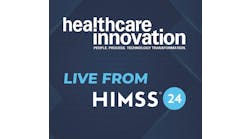Per a new grant from the Agency for Healthcare Research and Quality (AHRQ), University of Arizona researchers will soon be implementing alerts embedded in patients' electronic health records (EHRs) to estimate risk and to assist providers in mitigating sudden cardiac death.
The $766,000 grant, funded by the AHRQ, is driven by the fact that as many as two-thirds of elderly patients admitted to acute care settings are exposed to multiple medications known to interfere with the ability of the heart to "recharge" between beats, which could lead to a life-threatening form of cardiac arrhythmia, according to University of Arizona researchers.
As such, despite it being a rare occurrence, more than 150 common medications, including azithromycin and ondansetron, can contribute to prolonged heart-recharging intervals, which may lead to serious complications and/or longer hospital stays, they added.
Specifically, the project will use EHRs and prescribing systems to identify patients at high risk of harm from medications, and instantly send electronic messages to advise doctors of the risk and how to prevent the development of potentially life-threatening heart rhythm disorders and sudden death, according to officials.
"Real-time precision-guided prescribing will save lives and prevent drug-induced arrhythmias for patients in all of the University's clinical partners, including Banner Health," said C. William Heise, M.D., assistant professor, division of clinical data analytics and decision support at the UA College of Medicine-Phoenix.
The research team will work within 28 Banner Health facilities throughout Arizona, California, Colorado, Nebraska, Nevada, and Wyoming.
The project builds on data that already is captured in patients' electronic medical records, including data that is imported automatically from the hospital's electrocardiogram equipment.
"In addition to making this alert as specific and precise as possible, we will conduct usability testing to ensure it works in the provider's workflow," noted Corneliu Antonescu, M.D., clinical assistant professor, Department of Biomedical Informatics, at the UA College of Medicine-Phoenix and a physician informaticist with Banner Health.
The grant also will fund educational programs to inform health-care providers how to best utilize and respond to the computer-generated advisories, per university officials.

